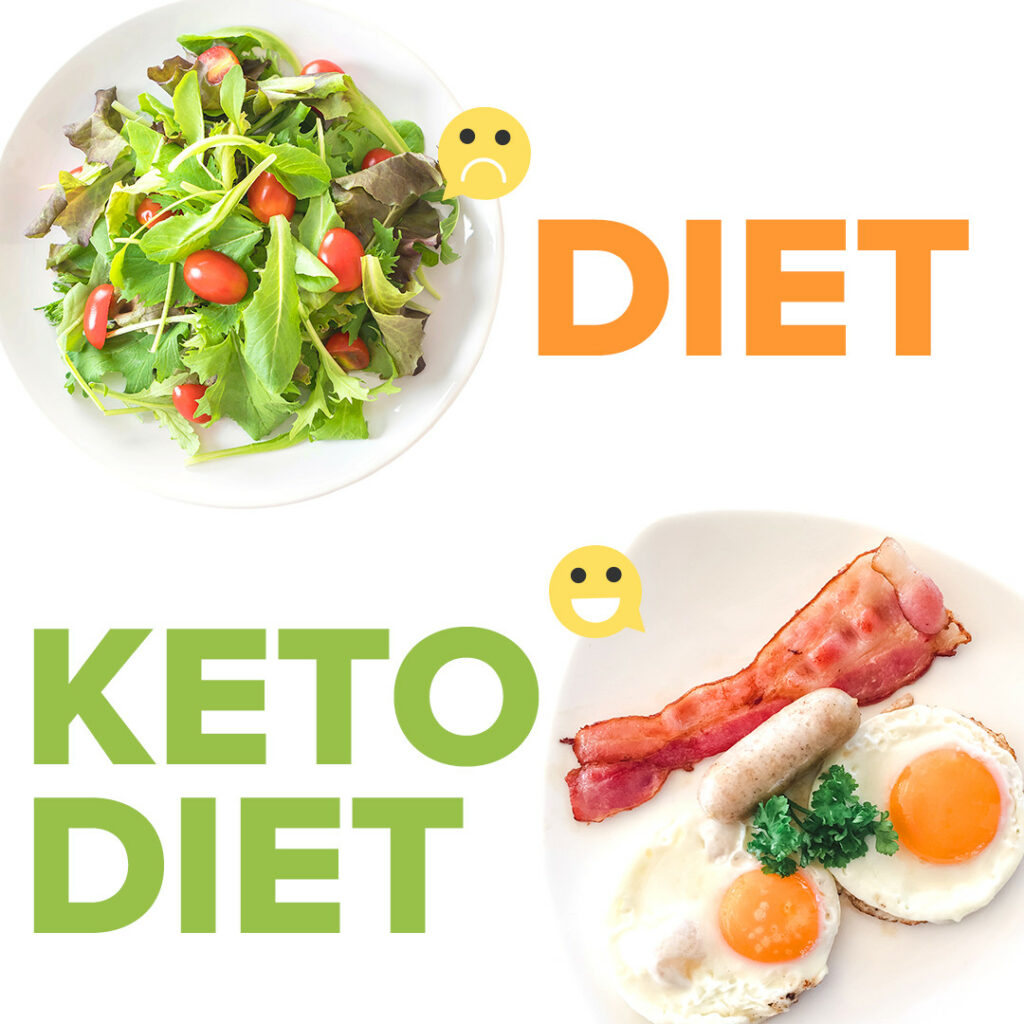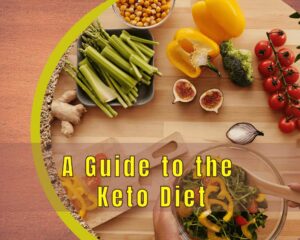
What happens when you eat a low-carb high-fat diet?

Disclosure: You should be aware that some of the links in this article may be affiliate links, which means that if you decide to buy something through one of these links, I may receive a commission, which does not increase the cost to you. This site does not provide financial or medical advice and is just for entertainment purposes. In our privacy policy, you may see our affiliate disclosure.
Are you tired of endless diets that promise rapid fat loss but leave you feeling deprived and unsatisfied? Well, it’s time to ditch the high-fat and low-carb diet approaches and embrace the benefits of a low-carb, high-fat diet.
Welcome to the world of the low-carb, high-fat diet, also known as the ketogenic diet. This revolutionary approach to weight loss is not only effective in shedding those unwanted pounds quickly but also has numerous other health benefits.
So fasten your seatbelts and get ready for a journey towards a leaner, healthier you

Table of Contents
How does a low-carb high-fat diet work?
A low-carb, high-fat (LCHF) diet, which is also sometimes called a ketogenic diet, is a way of eating that involves eating fewer carbohydrates and more fats.
The goal of this diet is to change the body’s main energy source from carbs to fats. This will eventually put the body into a state called ketosis, where it uses fats for energy instead of carbs. How it works:
1. Less intake of carbohydrates:
One of the most important parts of a low-carb, high-fat diet is eating a lot less carbs. Usually, this means cutting back on carb-heavy foods like bread, pasta, rice, sugary snacks, and vegetables that are high in starch.
2. Taking in more fat:
Fats are a big source of calories on an LCHF diet. You can get these fats from butter, nuts, seeds, avocados, and fatty fish. It stresses saturated fats and, more specifically, monounsaturated and polyunsaturated fats that are good for you.
3. Moderation of Protein:
On an LCHF diet, protein intake is usually moderated, which means you don’t eat too much protein. Meat, chicken, fish, and dairy products are all good sources of protein.
4. Being in ketosis:
People who drastically cut back on carbs run out of glucose (sugar), which is stored in their bodies. Because of this, your body starts to turn fats into molecules called ketones that can be used as fuel. If your body is in this state, it’s called ketosis.Fli It’s what low-carb, high-fat diets are known for and the main reason why they might be good for your health.

Key benefits and mechanisms of a low-carb, high-fat diet include:
1. Weight Loss:
Many people find that they naturally eat fewer calories when they cut back on carbs and up their fat intake. This helps them lose weight. The changes in metabolism that happen during ketosis can also help burn more fat.
2. Better control of blood sugar:
Low-carb diets can help control blood sugar levels, which makes them helpful for people with type 2 diabetes or who are at risk of getting it.
3. Less hunger:
Ketosis can make you feel fuller and less hungry, which may help you avoid eating too much.
4. Better Lipid Profile:
Some research shows that low-carb diets might make the balance of “good” (HDL) to “bad” (LDL) cholesterol and triglyceride levels in the blood better.
5. Better mental clarity:
Some people say that being in ketosis helps them focus and think more clearly.
Benefits of a low-carb, high-fat diet
These days, a low-carb high-fat (LCHF) diet is more popular, especially among people who want to lose weight. The best thing about this meal plan is that it can help you lose fat.
When you drastically cut back on carbs and boost your intake of healthy fats, your body has to burn stored fat for energy instead of glucose from carbs. This change in metabolism not only speeds up weight loss, but it also helps keep blood sugar levels steady all day.
A LCHF diet has also been shown to make insulin work better and lower inflammation in the body. High-carbohydrate foods can make your blood sugar levels rise, which can cause your body to make more insulin, which could eventually make your body resistant to insulin.
People on an LCHF diet can stabilize their insulin response by eating fewer carbs. This not only helps them lose weight but also lowers their risk of developing type 2 diabetes.
In addition to these benefits, many people find that switching to a low-carb, high-fat diet makes them feel fuller and less hungry. People feel fuller for longer periods of time without experiencing energy drops or intense hunger pangs during the day when they eat healthy fats like avocados, nuts, and olive oil, along with enough protein sources like lean meats or fish.
This long-lasting sense of satisfaction makes it easier to stick to a lower-calorie diet, which leads to better weight loss results in the long run. A low-carb, high-fat diet has many benefits besides just helping you lose weight; it’s also good for your health.
The role of ketosis in fat loss
A metabolic state called ketosis has become very popular as a way to lose weight. In this state, the body starts using fat for energy instead of glucose. But what does ketosis have to do with this process? But ketosis does more than just burn fat; it also has other benefits that can help you lose weight.
To begin, ketosis controls hunger hormones, which makes you feel less hungry. When we eat carbs, our blood sugar levels rise and fall, which makes us want to eat more and eat too much.
A ketogenic diet, on the other hand, has a lot of healthy fats and not too much protein. This keeps blood sugar stable and cuts down on hunger pangs. People who want to lose weight will find it easier to stick to a ketogenic diet if they can naturally control their appetite.
Following a ketogenic diet also makes it easier for the body to burn calories even when it’s not doing anything. This is because breaking down fat takes more energy than breaking down carbs.
When we go into ketosis and use stored body fat for energy, our metabolism speeds up and we burn more calories throughout the day.
Ketosis is a very important part of losing weight because it causes your body to burn more calories and suppress your appetite. If we know how our bodies react to different macronutrients and follow a strict ketogenic diet while being aware of the foods we eat, we can lose fat in a healthy way that lasts.
Sample meal plan for a low-carb high-fat diet
If you’re trying to lose weight, a low-carb high-fat diet may help you achieve your goal. Reducing carbohydrate consumption and increasing healthy fat consumption have been shown to increase fat burning and improve feelings of fullness. Here is an example diet that combines tasty foods with the maximum nutritional value for weight loss.
Make yourself a protein-rich omelet with veggies like spinach, mushrooms, and bell peppers for breakfast. Coconut oil is a great, healthy fat to use when cooking. A handful of almonds or macadamia nuts is a great way to stave off hunger until lunch.
For example, you could have grilled chicken or fish with steamed broccoli and cauliflower that has been seasoned with olive oil and herbs for lunch. Greek yogurt with fresh berries is a healthy and delicious way to satisfy your sweet tooth in the afternoon, it’s packed with beneficial bacteria and antioxidants.
Potential risks and considerations for this diet
In recent years, the low-carb diet plan has become very popular. However, it is important to be aware of the possible risks and things to think about before starting this diet.
One big worry about a low-carb diet is that it can leave you short on nutrients. One of the main ways our bodies get energy is from carbohydrates. Cutting back on carbohydrates may mean not getting enough fiber, vitamins, and minerals.
The effect on gut health is another thing to think about. Good bacteria in our guts depend on carbs for food, and those bacteria help keep our digestive systems healthy overall.
By cutting back on carbs a lot, we might upset this delicate balance and change the types of bacteria that live in our gut. This could lead to digestive problems such as constipation or bloating.
Additionally, sticking to a low-carb diet may seem like a good way to lose weight quickly, but many people find it hard to do in the long run.
If you don’t allow many carbohydrate-rich foods, you might feel deprived, which could lead to binge-eating episodes or giving up on the diet altogether.
When thinking about a low-carb diet plan, it’s important to think about these possible risks. For best results, talk to a doctor or registered dietitian first. They can give you personalized advice based on your specific needs and help you avoid any problems that might come up while following this diet plan.
Is a low-carb high-fat diet right for you?
The appropriateness of a low-carb high-fat diet for any given person will depend on their specific needs and preferences. Some people have found success with this eating plan for weight loss, better control of blood sugar, and reduced inflammation.
However, it might not be appropriate for everyone due to dietary restrictions or medical conditions. Before making any major dietary changes, it is recommended that you speak with a healthcare provider or registered dietitian.
To help you achieve your health goals, they can give you individualized advice based on your specific situation. Finding the right diet is all about finding what works for you and your body as a whole.
If a low-carb high-fat diet is something you’ve been thinking about it is always best to consult with your health care provider.
It is encouraged to not do an LCHF diet alone and to surround yourself with a team of people who can support you. Your healthcare provider needs to be on that team to guide you along your journey of healthy weight loss through a low-carb high-fat diet.
Summary
A high-fat and low-carb diet can have both positive and negative effects on the body.
On one hand, it may lead to weight loss, improved insulin sensitivity, and increased energy levels.
On the other hand, it could also increase the risk of heart disease and certain nutrient deficiencies.
It is important to remember that every person is different, and what works for one individual may not work for another. It is best to consult with a healthcare professional before making any drastic changes to your diet. Ultimately, the key lies in finding a balanced approach that works for you and supports your overall health and well-being.
Table of Contents

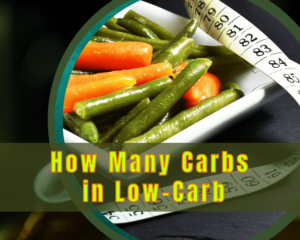
How Many Carbs in a Low-Carb Diet Is Ideal?
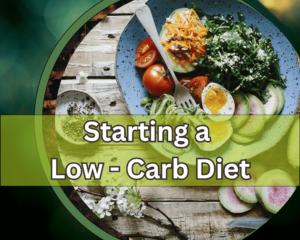
Jumpstart Your Journey: Starting a Low-Carb Diet 101
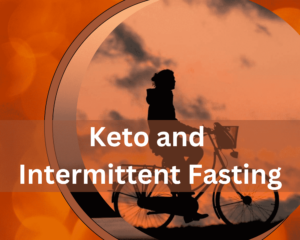
Keto and Intermittent Fasting Combo for Weight Loss
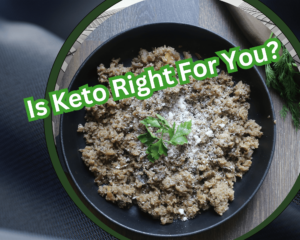
The Big Question About the Keto Diet for Weight Loss
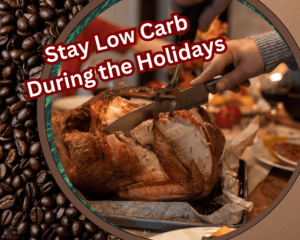
How to Stay Low Carb During the Holidays
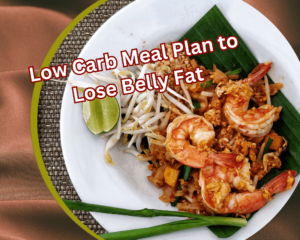
An Easy Low-Carb Meal Plan for Fat Loss

Mindful Eating: Key to Your Keto Diet During the Holidays

Your Ultimate Guide to the Best Keto Vegetables

What happens when you eat a low-carb high-fat diet?
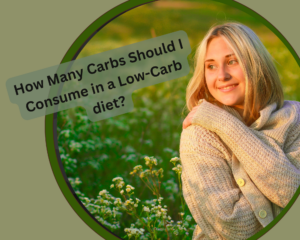
How Many Carbs Are in a Low-Carb Diet? Let’s Take a Look.
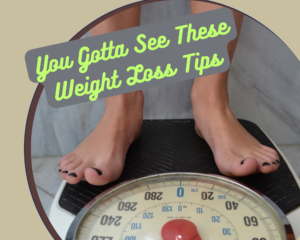
Top Tips for Fast and Effective Weight Loss
Disclosure: You should be aware that some of the links in this article may be affiliate links, which means that if you decide to buy something through one of these links, I may receive a commission, which does not increase the cost to you. This site does not provide financial or medical advice and is just for entertainment purposes. In our privacy policy, you may see our affiliate disclosure..



